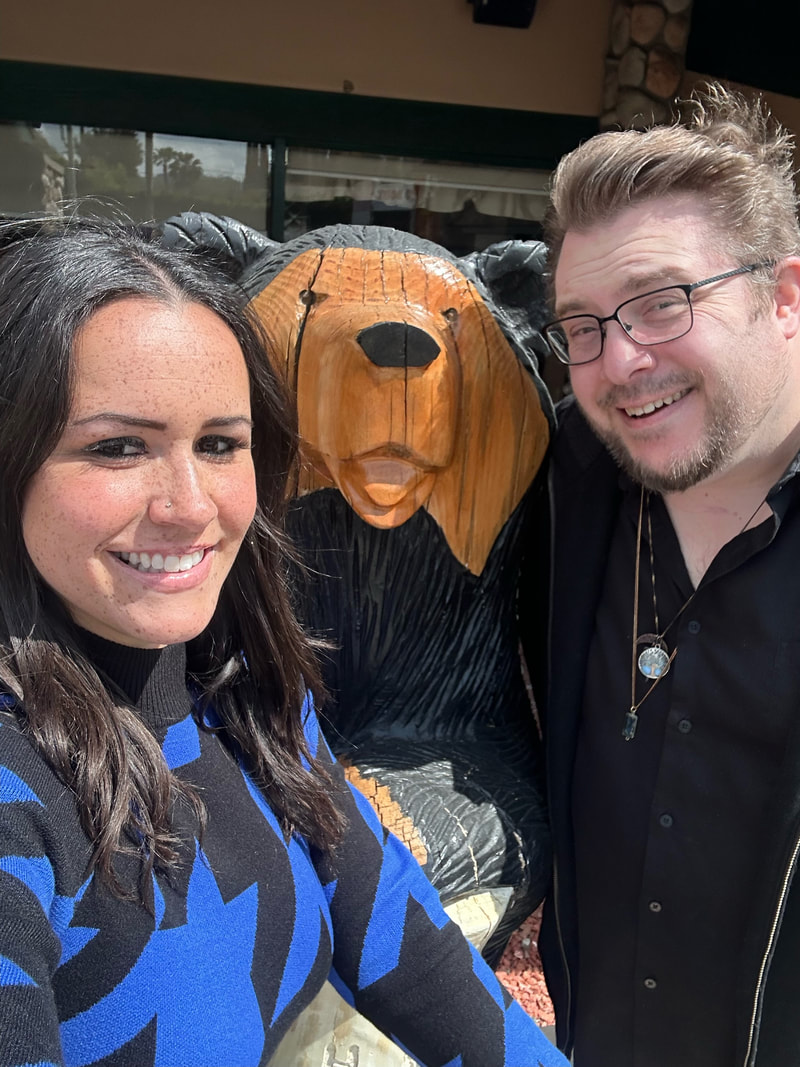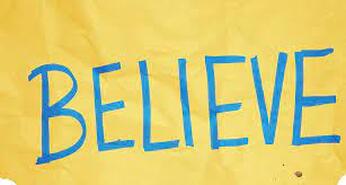|
Starting out in comedy, there two comics inside you, the one you are and the one you want to be. The voice of your comedy heroes, and the voice inside your head. The things you want to say and the things you have the actual courage to say. The voice wanting to fight through, and the voice protecting you from getting into a fight. There's a clean and corporate voice you use at work, and then there is the dirty, sarcastic voice you use around your friends. While both voices are you, in some way this division can trample your creative spirit and stop you from committing to the bit. Somewhere in all that existential mess is your "comedic voice." Most people just call it your "voice," but I would encourage you to call it your "comedic voice," because there are many voices in your head, and to maximize each one within their proper platform will help you create a comedy career that makes money and gets you booked more often. What Do You Mean By "Comedic Voice?" Most of the time, when comics tell you to find your voice, they don't realize something they already know: Your voice on stage that gets maximum laughter is not the same voice you might use in other areas of life. If you acted in the adult world like you did on stage, you'd probably get fired from your job or relationships. Like, you would literally get written notifications from your spouse that it's time to break up because you've become insufferable. In fact, ever look at the divorce rate of comics? Just a thought. In the adult world (I don't like the "real world" terminology) you have a customer service voice, a son or daughter voice, a parent voice, a voice you use when Amazon over charges you, and even a dating voice. Each is a voice, some would call it a persona, that you use as a way to communicate effectively. But imagine your spouse walked into the kitchen and you said, "What's the deal with you making a mess in the kitchen?" followed by "What's the deal with you riding my ass all week?" That type of comedic setup/punch would quickly become unwanted sarcasm, and potentially a night on the couch for someone. But on stage, it quickly gets you to the punchline. When I was a teacher, my voice was more carefree and inspirational, like Robin Williams in Good Will Hunting. When I was a wrestling coach later in the day, it was way more aggressive and borderline psychotic, like Al Pacino in Scent of a Woman. Same man. Different voices. Had I switched them, my students would have me fired, and my wrestlers would probably enjoy practice more but hate all the losing. Just for the record, my AP students and freshman English students regularly performed highest in the country in writing exams, and my wrestling teams won a lot of league titles. Comedy is no different. Once you tap into your "comedic voice," you will find your act flying higher than Seth Rogan at a pot shop. How Do I Find My Comedic Voice? This is where it gets tricky and sometimes disappointing. In my above examples, the key take-a-way was that each voice was received well by its audience, and I had to tap into different versions of myself to earn their respect and willingness to listen. The same goes for a comedian. Jerry Seinfeld said it best: "The audience trains you." Basically, your "comedic voice" is the voice people enjoy you using when you are on stage. George Carlin talked politics. Chris Rock talks about male/female relationships. Carrot Top uses props. If Carrot top started rambling about the Clinton administration in the 1990's he might have written some great jokes, but the audience received him best as a prop comic, and now he is one of the wealthiest comics of all time. Rock could have put clock on a dildo and called it a "ticking cum bomb," but it would have been way out of place considering his racial and relationship jokes. And his buddies would have disowned him out of embarrassment. If Carlin had complained how women are gold diggers, it would have felt creepy and made him rather unlikable. Instead, Carlin trashed baby boomers for being greedy, and the crowd roared. Jim Gaffigan was once interviewed and said early in his career he had dick jokes and avocado jokes, and the audience enjoyed the "mundane" material more. Gaffigan has proven himself to be a very thoughtful and intelligent man in interviews since, but his material remains within the same wheelhouse where the audience enjoys his perspectives on food and theme parks. Your "comedic voice," if desiring a profitable career, will come out of where the biggest laughs come from. It's not about becoming the comic you want to be, but finding what version of a comic others respond to. Now, your range of topics and attitudes can change. Louis CK went from observational comic to middle age crude philosopher. Taylor Tomlinson went from church girl to cynical millennial. And Jon Stewart had a very traditional observational act before becoming the political voice of reason. For everyone, it's a journey, with trial and error. But the key is to find what works and double down on that. Do you get laughs on being a stoner doofus? Are audience members coming up to you after saying your jokes on dating were relatable? What clips on IG Reels or Tik Tok are getting the most love? If you get out of your own way, you'll find where your voice shines bright. How Long Does It Take? Everyone is different. When I started out, I thought I would be a Christian comic playing churches. At the time I was a educator at a Christian high school and college. I was teaching Children's Sunday School and Bible studies. But since church crowds like marriage and kid material, I wasn't their cup of tea. You think 50 year old couples are on Bumble? They didn't even know what Bumble was! Then when I took my Christian jokes to clubs, they got laughs, but the jokes never "popped" until I doubled down on embarrassing stories and jokes where I had a slight "George Constanza" vibe. So my act became this theme: I win when I lose, and I lose when I win. What I've learned is as long this theme drives the joke, it will work 100% of the time - For Me. The rest of my jokes that don't follow this formula, they are hit and miss or fall flat. I'll give you a recent example. I recently wrote a bit how I stayed at my best friend's place at Christmas and how his 3 year old son kept asking when was I leaving. So I'm winning because I'm hanging with my best friend's family, but I'm losing because I'm getting heckled by his kid. Big laughs every time. When I expanded the bit to talk about how his in-laws stay with them a few times a year, I joked I only want to date orphans to prevent that problem. I even wrote a tag about using the dating app Orphans Only. I thought that was hysterical. Crickets. Nothing. Why? Because it's not the "comedic voice" the audience enjoys. Maybe my friends who know me would laugh, but strangers just pulled back. It took me about three years to stumble unto this realization, but most comics will tell you that it takes at least 8-10 years to find a voice, and another 8-10 years to perfect that voice. Will there be hits and misses? Of course. But the faster you let the audience train you, you'll find that voice. Here's An Exercise to Try This is an exercise I use to give students at their next 5 minute set. Open with one joke about your identity. This can be a joke about your looks, sexual identity, political leanings, etc. Then rant for 2 minutes about a small problem in your life. Then do one minute on a big problem/issue in society - like the president, war, religion, Super Bowl observations, etc. This will allow you to see the shift in the audience. Watch what they're responding to. Then wrap it up with a final joke. That should be 4-5 minutes. But instead of focusing on perfecting the jokes, just gage the audience. Look into their eyes. Are they with you? If they are or aren't, take that away with you. Learn from what works and what doesn't that way. Then at the next 5 minute mic ONLY do jokes that match the one that worked. Then at the next 5 minute mic ONLY do jokes in the vein of those that didn't. Feel the energies. I mean it. Learning to understand audience energy is a faster way than just trying anything and seeing it it works. Final Thoughts Your "comedic voice" is your comedic identity. You don't want finding it to take forever because you will become frustrated and bitter. You will also lose out on bigger gigs down the line. The process is hard, and you have to be vulnerable. If you are afraid to bomb, you'll never get there. But once you do, you'll have a "comedic voice" you can share with everyone. Whether it's Jerry Seinfeld's "Ever notice how weird this little part life is?" voice, Amy Schumer's "Walk of Shame Cool Aunt Advice" voice, or Keven Hart's "Can you believe this is happening?" voice, every great comic has a unique "comedic voice," and once you tap into it, your writing, performing, and confidence will skyrocket.
0 Comments
Leave a Reply. |
Paul Douglas Moomjean Blog's About What's on His MindBlogging allows for me to rant when there is no stage in the moment to talk about what's important and/or funny to me. Archives
July 2024
Categories |

 RSS Feed
RSS Feed
